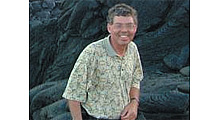
Doug Lung
The House Energy and Commerce Subcommittee on Communications and Technology held a hearing Wednesday with all five of the FCC commissioners to discuss “Keeping the New Broadband Spectrum Law on Track.”
After watching the two-hour and 45 minute hearing on the Web, I was surprised to how little time was devoted to the impact of the incentive auctions on broadcasters. While members were supportive of broadcasters, the Subcommittee's press release on the hearing doesn't even mention broadcasters.
The main concern was whether the FCC had structured the auction in a way to obtain the highest amount of revenue and the most spectrum for wireless broadband. The amount of spectrum allocated for guard bands and unlicensed use was questioned, although there was support for some amount of unlicensed spectrum.
Subcommittee Chairman Greg Walden commented, “Finally, let me make it clear, I support the use of unlicensed spectrum to foster innovation and provide much needed offload for congested mobile broadband networks. That’s why our bill expands the amount of unlicensed spectrum by identifying an additional 195 MHz in the 5 GHz band, frequencies ideal for this kind of use. It also codifies the use of white spaces. What I cannot support is the unnecessary expansion of unlicensed spectrum in other bands needed for licensed services, especially at the expense of funding for public safety.”
Representative John Dingel questioned FCC Chairman Genachowski about compliance with the law's requirement to ensure that require all reasonable efforts are made to preserve broadcaster's coverage and population served. With regard to this, Dingle asked, “Does the Commission intend to define explicitly what such what reasonable efforts will constitute?” Genachowski answered “yes”. He then asked, “Does the Commission expect to have defined such reasonable efforts?” Genachowski answered “Yes.” Rep. Dingel then asked, “Does the Commission publicly commit to sharing with the public the repacking methodology it adopts as well as the variables and other inputs it may use to predict repacking results?” Genachowski replied in the affirmative.
These are only a few of the many questions Dingel posed to the FCC Chairman. The first line of questioning appeared to catch Chairman Genachowski off guard. Dingel noted, and Genachowski agreed, that coordination with Canada and Mexico took a long time during the DTV transition. Rep. Dingel asked the Chairman for a yes or no answer as to whether the Commission will commence new arrangements with the State Department, Canada and Mexico regarding channel changes before repacking broadcast frequencies. Chairman Genachowski couldn't provide a yes or no answer. When Dingel said the law required this, the FCC Chairman said they would comply with the law.
Representative Joe Barton had similar problems getting clear answers from the Commissioners when he asked about the status of low-power TV (LPTV) broadcasters about an hour and 25 minutes into the hearing.He said, “I didn't envision that we would have the end result that a low-power television station would simply end up off the air.” He said it wasn't fair that a “low-power television station that been a good licensee is totally off the air.” Chairman Genachowski acknowledged the value LPTV stations provide but didn't provide a clear answer, In the case of other questions on the incentive auctions, the Commissioners said they were looking for comments on them in the NPRM.
It is worthwhile watching the recording of the hearing on-line. You can fast forward through the discussions on who should be allowed to bid for the spectrum and the use of government spectrum to pick up some of the tidbits about broadcasters and concerns about how the FCC will handle the repacking.
The professional video industry's #1 source for news, trends and product and tech information. Sign up below.

Doug Lung is one of America's foremost authorities on broadcast RF technology. As vice president of Broadcast Technology for NBCUniversal Local, H. Douglas Lung leads NBC and Telemundo-owned stations’ RF and transmission affairs, including microwave, radars, satellite uplinks, and FCC technical filings. Beginning his career in 1976 at KSCI in Los Angeles, Lung has nearly 50 years of experience in broadcast television engineering. Beginning in 1985, he led the engineering department for what was to become the Telemundo network and station group, assisting in the design, construction and installation of the company’s broadcast and cable facilities. Other projects include work on the launch of Hawaii’s first UHF TV station, the rollout and testing of the ATSC mobile-handheld standard, and software development related to the incentive auction TV spectrum repack. A longtime columnist for TV Technology, Doug is also a regular contributor to IEEE Broadcast Technology. He is the recipient of the 2023 NAB Television Engineering Award. He also received a Tech Leadership Award from TV Tech publisher Future plc in 2021 and is a member of the IEEE Broadcast Technology Society and the Society of Broadcast Engineers.
